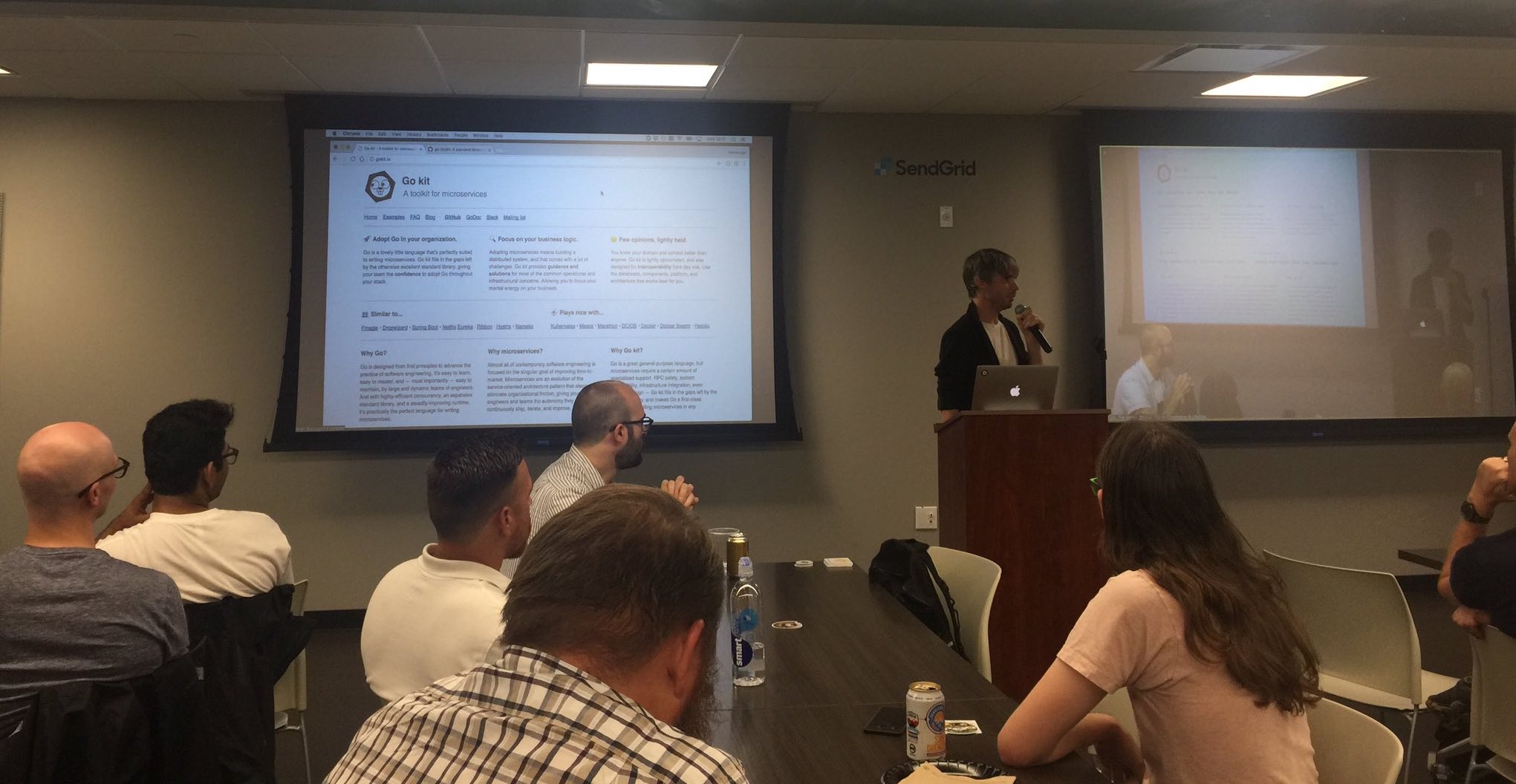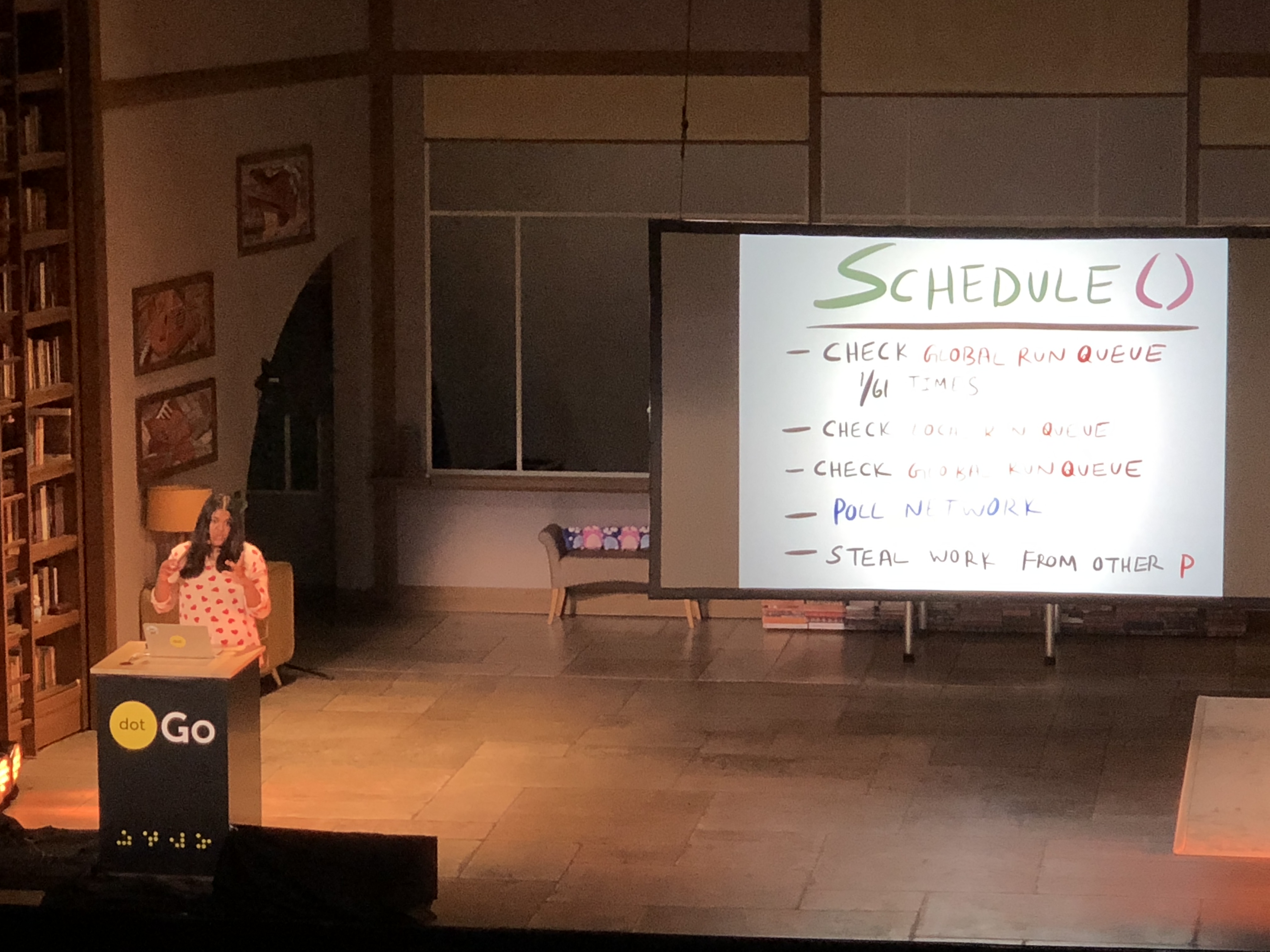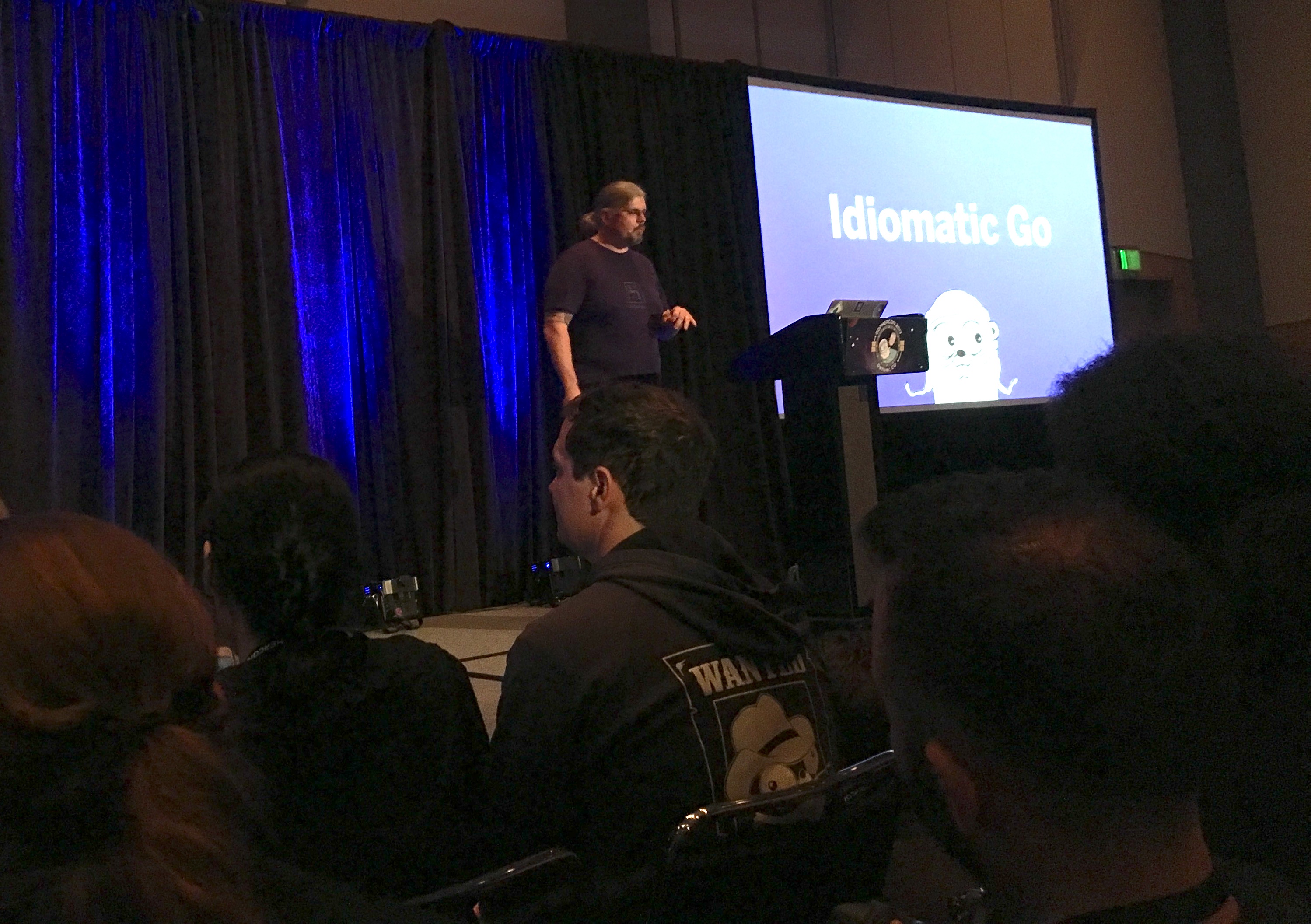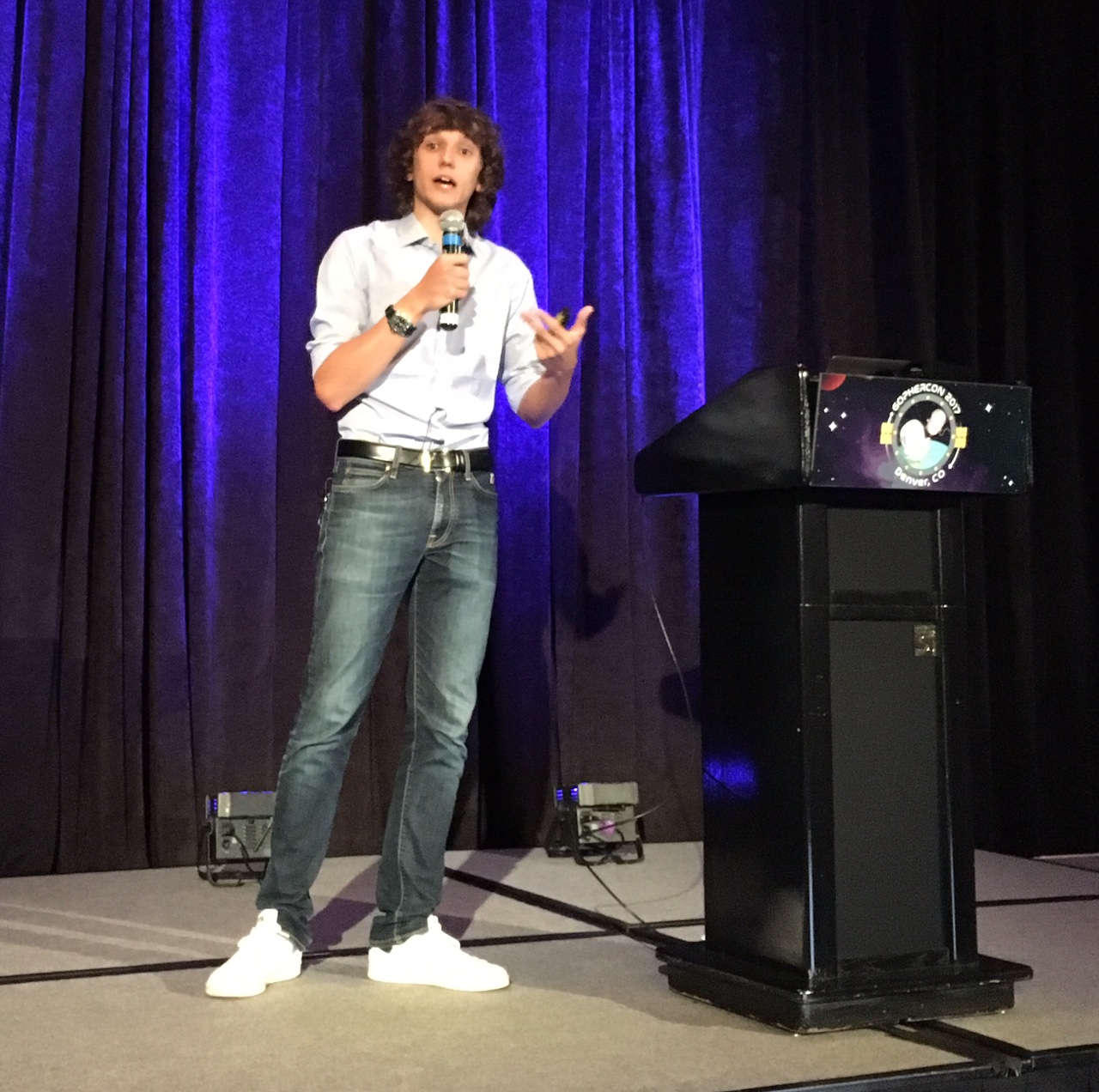Code intelligence with LSIF
Chris Wendt on September 10, 2019
Code intelligence with LSIF
Read more
GopherCon 2019 - What got us here, won't get us there
Andrea Santillana for the GopherCon 2019 Liveblog on July 26, 2019
There's never been a better time to adopt Go. The language is attracting more newcomers every day and by all accounts, its community has a lot to do with it. If, however, we want to retain what makes Go special beyond the language itself, we, as a community, must recognize and amplify what makes ...
Read more
GopherCon 2019 - How I write HTTP web services after eight years
Kenigbolo Meya Stephen for the GopherCon 2019 Liveblog on July 26, 2019
A look at how Mat Ryer builds web services after doing so for the past eight years. Extremely practical, tried and tested patterns that everybody can start using today.
Read more
GopherCon 2019 - Tracking inter-process dependencies using static analysis
Beyang Liu for the GopherCon 2019 Liveblog on July 26, 2019
Using a service-oriented architecture instead of a monolithic architecture adds flexibility but also increases complexity. How will we keep track of which parts of our system depend on each other? To help solve this problem, I've been working on a project to analyze Go code (using Go!) to detect ...
Read more
GopherCon 2019 - Two Go programs, three different profiling techniques, in 50 minutes
Anton Velikanov for the GopherCon 2019 Liveblog on July 26, 2019
Go, being a relatively recent statically typed, compiled language, is known to produce efficient programs. But writing a program in Go is not sufficient for good performance.
Read more
GopherCon 2019 - Detecting incompatible API changes
Carmen Andoh for the GopherCon 2019 Liveblog on July 26, 2019
Detecting whether your package's API is backwards-compatible is an important problem. You want to know whether your change could break existing users, or whether you're just adding new features. In this tutorial, I'll begin by discussing what we mean by API compatibility. I'll talk about how comp...
Read more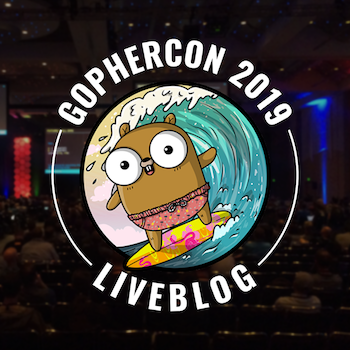
GopherCon 2019 - Dynamically instrumenting Go programs
Beyang Liu for the GopherCon 2019 Liveblog on July 26, 2019
Ever wanted to ask arbitrary questions about your program while it is running with minimal impact on performance? In this talk, we go beyond static instrumentation and look at specific techniques for gathering information about your programs so that you can understand what your gophers are up to!
Read more
GopherCon 2019 - Go Linters: Myths and best practices
John Reese for the GopherCon 2019 Liveblog on July 26, 2019
Go contains over 50 different linters. For linter adepts, I'll reveal how to use their full power, as well as little-known tips and tricks to get ahead. For linters beginners, this presentation explains what they are, the benefit of their use, and the best way to introduce them into a workflow.
Read more
GopherCon 2019 - Death by three thousand timers: Streaming video-on-demand for Cable TV
Larry Clapp for the GopherCon 2019 Liveblog on July 26, 2019
Can Go handle soft real-time applications? Learn about the challenges my team overcame to deliver video-on-demand MPEG streams to millions of cable TV customers using pure Go. Along the way we'll dig deeper into how Go manages timers and goroutine scheduling.
Read more
GopherCon 2019 - Optimizing Go Code without a blindfold
Colin King for the GopherCon 2019 Liveblog on July 26, 2019
Making code faster is exciting, and benchmarks in Go make that easy to do! Not really. Optimizing a program can be complex and requires careful consideration to do so properly. This session will demonstrate techniques and tools which are a must for any performance aficionado.
Read more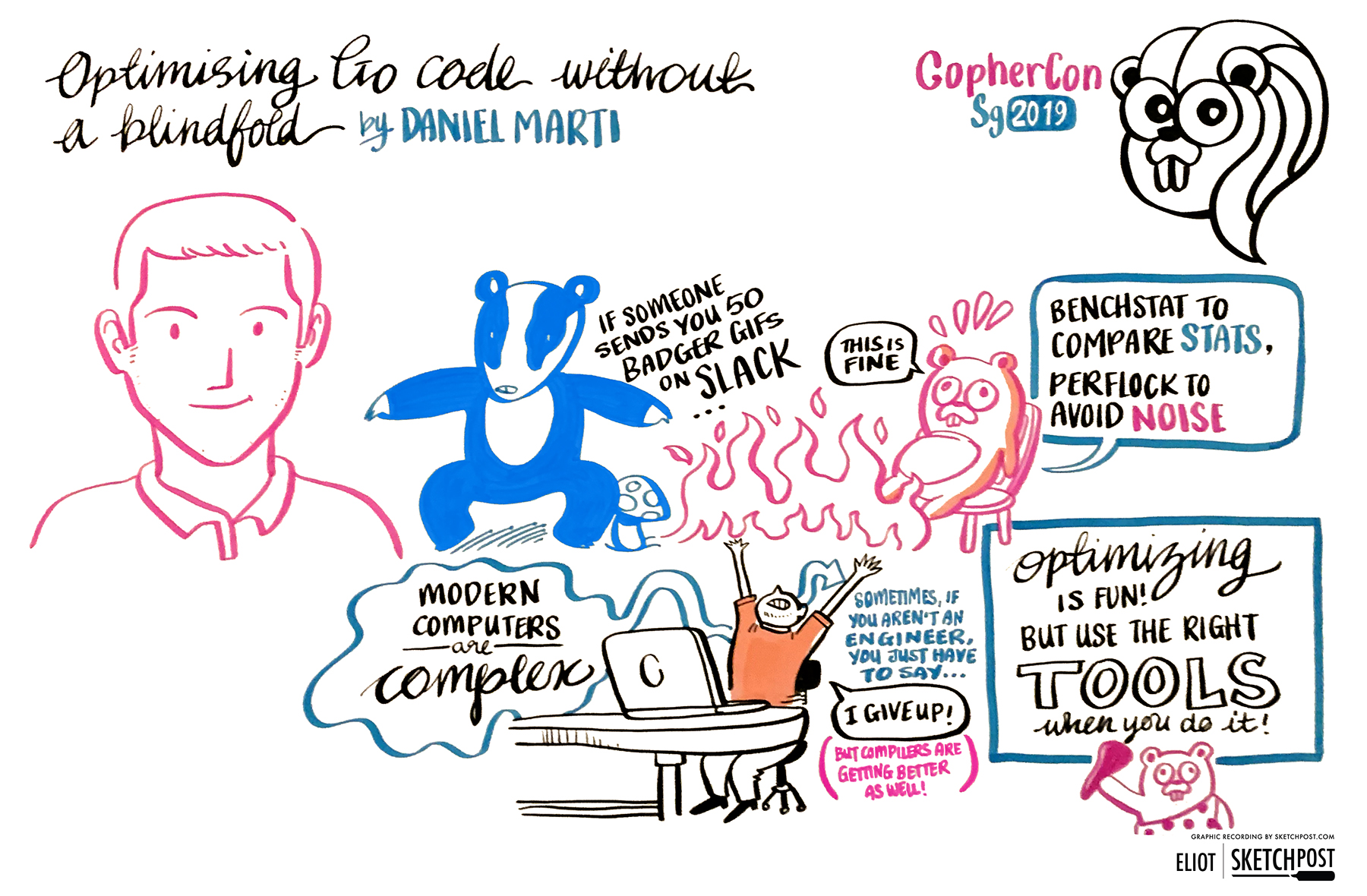
GopherCon 2019 - Socket to me: Where do Sockets live in Go?
Dawson Mortenson for the GopherCon 2019 Liveblog on July 26, 2019
Have you ever used HTTP server functions surfaced by the net/http package? Or gone down a couple of network levels and used TCP and UDP Listeners? Sockets are the secret sauce underlying these networking tools in Go. While Go abstracts away sockets, there are circumstances where knowing about soc...
Read more
GopherCon 2019 - Small is going big: Go On microcontrollers
Julie A. Kohler for the GopherCon 2019 Liveblog on July 26, 2019
TinyGo takes the Go programming language to the 'final frontier' where we could not go before... running directly on microcontrollers like Arduino and more! In this talk I will introduce TinyGo (http://tinygo.org) a new miniature version of the Go language that uses the LLVM compiler toolchain to...
Read more
GopherCon 2019 - You can't Go your own way: The standardization of Go at GitHub
Amber Byers for the GopherCon 2019 Liveblog on July 26, 2019
Ever feel like moving code bases, even in the same language, can feel like working at an entirely new company? Over the past year, GitHub has been working on standardizing its usage of Go to mitigate issues like this. This talk will cover challenges faced and lessons learned throughout this process.
Read more
GopherCon 2019 - Generics in Go
Dimitrios Arethas for the GopherCon 2019 Liveblog on July 26, 2019
Advantages and requirements for generics in Go.
Read more
GopherCon 2019 - The Athens project: A proxy server for Go modules
Christina Forney for the GopherCon 2019 Liveblog on July 26, 2019
Go 1.11 was a big release for all of us because we got a new package management system called modules built right into the go CLI. If you tried out vgo before 1.11, you'll be familiar with modules. There's some really cool stuff in there, but there's one piece that a lot of us missed that we need...
Read more
GopherCon 2019 - Contributing to the os Package: How deep do you Go?
Issac Trotts for the GopherCon 2019 Liveblog on July 25, 2019
When the core of a language fails you, and you can't remove a file, how can you fix it? Oliver will share his contribution journey from bug to merge in a crucial part of Golang: the os package. Discover how Golang manages platform independence and how even novices can contribute Unix system calls.
Read more
GopherCon 2019 - Design Command-Line Tools People Love
Jennifer Davis for the GopherCon Liveblog on July 25, 2019
It is a joy to build command-line tools that are not only easy to learn, but that other developers are willing to maintain. Often a team's engineering efforts are spent on the backend, while the cli doesn't receive the same level of attention. This can result in hard-to-test tools and dumping mai...
Read more
GopherCon 2019 - PKI for Gophers
Stephen Gutekanst for the GopherCon 2019 Liveblog on July 25, 2019
TLS is easy, PKI is hard. Learn about Go primitives for generating certificate hierarchies, instrumenting mTLS, hardware backed keys, and public infrastructure like Let's Encrypt and Certificate Transparency. Along the way we'll discuss roots of trust for automated issuance, nuances of revocation...
Read more
GopherCon 2019 - The Gopher's manual of style
Beyang Liu for the GopherCon 2019 Liveblog on July 25, 2019
Our industry has borrowed ideas and practices from a range of industries to improve the design and production of software. In this talk, we'll look to the publishing industry for ways to improve software development for our industry and within the Go community.
Read more
GopherCon 2019 - Better x86 Assembly Generation from Go
Dimitrios Arethas for the GopherCon 2019 Liveblog on July 25, 2019
This talk will equip you with the tools to safely write lightning fast assembly functions for Go. We will introduce Go assembly and the role it plays in the Go ecosystem, promote best practices for assembly development and demonstrate how code generation tools can manage complexity in large assem...
Read more
GopherCon 2019 - Go Module Proxy: Life of a query
Royce Miller for the GopherCon 2019 Liveblog on July 25, 2019
The Go team has built a module mirror and checksum database, which adds reliability and security to the Go ecosystem. This talk discusses the technical details of authenticated module proxies, following the journey of a request through the go command, proxy, and checksum database.
Read more
GopherCon 2019 - Controlling the go runtime
Sue Spence for the GopherCon 2019 Liveblog on July 25, 2019
Sometimes we need to tell the go runtime what to do. This talk explains how to control the runtime, why we should, and describes two new ways to control it better.
Read more
GopherCon 2019 - Get Going with WebAssembly
Alex Boten for the GopherCon Liveblog on July 25, 2019
Presenter: Johan Brandhorst Liveblogger: Alex Boten Curious about WebAssembly and how we can use it with Go? In this session, Johan introduces the technology, shows how to get started with WebAssembly and Go, discusses what is possible today and what will be possible tomorrow. What is WebAssembly…
Read more
GopherCon 2019 - Handling Go errors
Marvin Guerra for the GopherCon 2019 Liveblog on July 25, 2019
Let's talk about programmable errors and how you can design your own architecture that allows you to legibly master your system failures.
Read more
GopherCon 2019 - Go, pls stop breaking my editor
Vanessa Nicole Naff for the GopherCon 2019 Liveblog on July 25, 2019
The Go community has built many amazing tools to improve the Go developer experience. However, when a maintainer disappears or a new Go release wreaks havoc, the Go development experience becomes frustrating and complicated. This talk will cover the details behind a new tool to solve these issues...
Read more
GopherCon 2019 - Simple, Portable and Efficient Graphical Interfaces in Go
Christina Forney for the GopherCon 2019 Liveblog on July 25, 2019
Gio is a new open source Go library for writing immediate mode GUI programs that run on all the major platforms: Android, iOS/tvOS, macOS, Linux, Windows. The talk will cover Gio's unusual design and how it achieves simplicity, portability and performance.
Read more
GopherCon 2019 - How Uber 'Go'es
Ian Molee for the GopherCon 2019 Liveblog on July 25, 2019
Maintaining a large codebase with maximum readability and minimal overhead is hard. This is the story of how Go went from a few enthusiastic Gophers to the most popular language for microservices at Uber. Learn where we failed, and how that led us to solutions that we think are pretty darn neat!
Read more
GopherCon 2019 - On the road to Go 2
Alan Braithwaite for the GopherCon 2019 Liveblog on July 25, 2019
We're on the road to Go 2. But where exactly are we? Where are we headed? Come find out.
Read more
Sourcegraph liveblogging at GopherCon 2019!
Ryan Blunden - Developer Advocate at Sourcegraph on July 22, 2019
For the third year, Sourcegraph is proud to host the official liveblog for GopherCon and we're looking for attendees who want to contribute. Is that you?
Read more
GopherCon 2018 - Rethinking Classical Concurrency Patterns
Dmitri Shuralyov on September 4, 2018
Presenter: Bryan C. Mills Liveblogger: Dmitri Shuralyov In this talk, Bryan Mills from the Go team at Google invites us to rethink and reinvent some classical concurrency patterns in the context of Go. Summary This talk will cover two principles related to the Go concurrency primitives (goroutines…
Read more
GopherCon 2018 - Demystifying Binary Search Tree Algorithms
Geoffrey Gilmore for the GopherCon Liveblog on August 30, 2018
Presenter: Kaylyn Gibilterra Liveblogger: Geoffrey Gilmore Learning algorithms can be overwhelming and demoralizing, but it doesn't have to be. In this talk, Kaylyn explains binary search tree algorithms in a simple and straightforward manner with code examples in Go. Introduction Kaylyn started…
Read more
GopherCon 2018 - The Importance of Beginners
Ryan Blunden for the GopherCon Liveblog on August 30, 2018
Presenter: Natalie Pistunovich Liveblogger: Ryan Blunden Title Graphic: Amy Chenimage Summary Natalie talks about the massive growth in the GopherCon community and the need to prepare for and embrace the huge amount of beginners that will become Gophers in 2018 and beyond. When Natalie first star...
Read more
GopherCon 2018 - Writing Accessible Go
William Kennedy for the GopherCon Liveblog on August 29, 2018
Presenter: Julia Ferraioli Liveblogger: William Kennedy Title Graphic: Amy Chenimage Summary Julia spoke to the importance of writing code that was accessible to all developers. She shared the story of her disability and how it affects her ability to read and write code. She provided examples of ...
Read more
GopherCon 2018 - 5 Mistakes C/C++ Devs make writing Go
Beyang Liu for the GopherCon Liveblog on August 29, 2018
Nyah Check (@nyah_check, slides) is a software engineer at Altitude Networks. Nyah comes from a C/C++ background and subsequently wrote a lot of bad Go code early on. He hopes others can learn from his mistakes. He has classified his mistakes under 3 topics: Heap vs. Stack Memory & Goroutine leaks…
Read more
GopherCon 2018 - Adventures in Cgo Performance
Keegan Carruthers-Smith for the GopherCon Liveblog on August 29, 2018
Presenter: Mr. Sean T. Allen Liveblogger: Keegan Carruthers-Smith Covers hard-won knowledge about using cgo in performance sensitive code including: ways in which cgo makes interoperation with other languages difficult, how you can work around common sources of performance and scaling problems, and…
Read more
GopherCon 2018 - Becoming a Go Contributor
Farhan Attamimi for the GopherCon Liveblog on August 29, 2018
Presenter: Kevin Burke Liveblogger: Farhan Attamimi A guide to becoming a contributor to the Go project. Summary Kevin Burke talks us through his journey to becoming a contributor to Go. He encourages developers to start contributing with small changes to build trust and ownership, and gives tips...
Read more
GopherCon 2018 - C L Eye-Catching User Interfaces
Ryan D for the GopherCon Liveblog on August 29, 2018
Presenter: James Bowes Liveblogger: Ryan D This blog was written by @ryan0x44 from Cloudflare. If you want to write Go and help build a better Internet, Cloudflare is hiring! James' tutorial session will teach you how to use the many features and techniques available for building interactive CLIs…
Read more
GopherCon 2018 - From Prototype to Production: Lessons from Building and Scaling Reddit's Ad Serving Platform with Go
Farhan Attamimi for the GopherCon Liveblog on August 29, 2018
Presenter: Deval Shah Liveblogger: Farhan Attamimi How Reddit built its ad-serving system using Go, and the lessons learned from the process. Summary The Reddit engineering team recently introduced Go into their stack to write a new ad-serving system to replace a third party system. Deval Shah ta...
Read more
GopherCon 2018 - Go in Debian
Larry Clapp for the Gophercon Liveblog on August 29, 2018
Presenter: Michael Stapelberg, stapelberg@debian.org Creator of the i3 Linux window manager Liveblogger: Larry Clapp Using Go in and with Debian Summary Debian services and tools written in Go. Developing and packaging Go software for use in Debian. Upstream best practices. This is a broad…
Read more
GopherCon 2018 - Going Serverless
Ryan Blunden for the GopherCon Liveblog on August 29, 2018
Presenter: Kelsey Hightower Liveblogger: Ryan Blunden Summary In this talk, Kelsey demonstrated what a simple Serverless application looks like, highlighted some best practices and inspired Go developers who haven't experimented with Serverless yet to give it a try. While he doesn't suggest we all…
Read more
GopherCon 2018 - gRPC reflection and grpcurl
Alan Shreve for the GopherCon Liveblog on August 29, 2018
Presenter: Joshua Humphries Liveblogger: Alan Shreve grpcurl: Dynamic CLI interface for grpc services via protobuf descriptors and grpc reflection. Summary grpcurl is a CLI tool that can provide a human-friendly CLI experience to dynamically invoke grpc services. Built on top of protobuf descript...
Read more
GopherCon 2018 - gRPC, State Machines, and ... Testing?
Larry Clapp for the GopherCon Liveblog on August 29, 2018
Presenter: Amy Codes, @TheAmyCode Liveblogger: Larry Clapp Introduction to Finite State Machines (FSMs), touching on gRPC, and testing of the FSM. Summary Amy walks us through her usage of a Finite State Machine to implement automatic upgrades of clients running in a Kubernetes (k8s) cluster, also…
Read more
GopherCon 2018 - How to Write a Parser in Go
Nick Snyder for the GopherCon Liveblog on August 29, 2018
Presenter: Sugu Sougoumarane Liveblogger: Nick Snyder Sugu Sougoumarane is the co-creator of Vitess, which contains a SQL parser that is now used by many other projects. In this talk he demonstrates how to write a parser using goyacc. Summary goyacc is almost an exact translation of the original…
Read more
GopherCon 2018 - Implementing a Network Protocol in Go
Beyang Liu for the GopherCon Liveblog on August 29, 2018
Presenter: Matt Layher Liveblogger: Beyang Liu An very detailed walkthrough of implementing a networking protocol (NDP in IPv6) in Go, with many, many code snippets. Matt Layher (@mdlayher, talks) is an engineer at Digital Ocean. Intro The IPv6 Neighbor Discovery Protocol (NDP) is our focus for…
Read more
GopherCon 2018 - Micro-optimizing Go Code
Matthew Jaffee for the GopherCon Liveblog on August 29, 2018
Presenter: George Tankersley Liveblogger: Matt Jaffee Everyone knows: if you need to go fast, bust out the assembly. But what if there's better performance to be had just by writing Go more carefully? Summary In this tutorial session, George will optimize a hash function in pure Go, starting from a…
Read more
GopherCon 2018 - The Go Programmer's Guide to Secure Connections
Keegan Carruthers-Smith for the GopherCon Liveblog on August 29, 2018
Presenter: Liz Rice Liveblogger: Keegan Carruthers-Smith Title graphic: Amy Chen A practical guide to what is happening under the covers when applications or users need to identify themselves, or need a secure channel for communications.image Summary The motivation of the talk is to understand what…
Read more
GopherCon 2018 - An Over-Engineering Disaster with Macaroons
Guillaume J. Charmes for the GopherCon Liveblog on August 28, 2018
Presenter: Tess Rinearson Liveblogger: Guillaume J. Charmes This is a story about cool new technology, over-engineering, and coconut cookies. Summary Macaroon is an exciting new technology that promises to solve the authentication/authorization problem. Tess Rinearson, VP of Engineering at Chain…
Read more
GopherCon 2018 - Asynchronous Networking Patterns
Nick Snyder for the GopherCon Liveblog on August 28, 2018
Presenter: Filippo Valsorda Liveblogger: Nick Snyder Filippo Valsorda, a Cryptogopher on the Go Team at Google, demonstrates how to write a TCP network listener using package . Summary gvt is retired. You can build a network proxy using package net that is: About 100 lines of Go. As performant as…
Read more
GopherCon 2018 - Allocator Wrestling
Beyang Liu for the GopherCon Liveblog on August 28, 2018
Presenter: Eben Freeman Liveblogger: Beyang Liu Summary A whirlwind tour of the Go memory allocator and garbage collector, with tools and tips on how to optimize. The allocator and garbage collector are pretty ingenious! Single allocations are fast but not free The garbage collector can stop…
Read more
Gophercon 2018 - Computer Vision Using Go and OpenCV 3
Beyang Liu for the GopherCon Liveblog on August 28, 2018
Presenter: Ron Evans Liveblogger: @beyang Summary An introduction to and tour of computer vision programs written in Go using GoCV––with code snippets and live demos! Ron Evans is the creator of open source robotics projects Gobot.io and Gocv.io, and the leader of The Hybrid Group, the "software…
Read more
GopherCon 2018 - Go for Information Displays
Alan Braithwaite for the GopherCon Liveblog on August 28, 2018
Presenter: Anthony Starks Liveblogger: Alan Braithwaite Go for "programming pictures" -- turning data into compelling displays and visualizations. Summary Go, while typically used primarily for systems programming, is an excellent language for visualization tools given it's rich image processing…
Read more
GopherCon 2018 - Go says WAT?
Alan Bernstein for the GopherCon Liveblog on August 28, 2018
Presenter: Jon Bodner Liveblogger: Alan Bernstein Despite our smugness, Go has some weird corners where the "obvious" behavior is not the "actual" behavior. Summary Go developers watch videos like Gary Bernhardt's Wat and feel smug. After all, Go is a typesafe language with no automatic type…
Read more
GopherCon 2018 - How Do You Structure Your Go Apps?
Matt King for the GopherCon Liveblog on August 28, 2018
Presenter: Kat Zień Liveblogger: Matt King dltmtnluyaemt6p (Photo credit: arbourdx) How should I structure my Go code?” is probably one of the most commonly asked questions, by new and experienced programmers alike. There is almost always more than one answer and it can be tricky to decide what w...
Read more
GopherCon 2018 - Machine Learning in Go
Steven Klassen for the GopherCon Liveblog on August 28, 2018
Presenter: Francesc Campoy Flores Liveblogger: Steven Klassen We've all wondered how to use Machine Learning with Go, but what about turning the tables for once? What can Machine Learning do for Go? During this presentation, we will discover how different Machine Learning models can help us write…
Read more
GopherCon 2018 - Painting with Light
Farhan Attamimi for the GopherCon Liveblog on August 28, 2018
Presenter: Hunter Loftis Liveblogger: Farhan Attamimi Summary This talk covers the history of path tracing, what basic path tracing is, and how to build a path tracer in Go. Specifically, it covers rendering images using path tracing in Go, explores tradeoffs between concurrency schemes for…
Read more
GopherCon 2018 - The Scheduler Saga
Keegan Carruthers-Smith for the GopherCon Liveblog on August 28, 2018
Presenter: Kavya Joshi Liveblogger: Keegan Carruthers-Smith The Go scheduler is the behind-the-scenes magical machine that powers Go programs. It efficiently runs goroutines, and also coordinates network IO and memory management. This talk will explore the inner workings of the scheduler machinery…
Read more
Sourcegraph liveblogging at GopherCon 2018!
Ryan Blunden - Developer Advocate at Sourcegraph on August 22, 2018
We are Sourcegraph, known to our Developers as "a great source code browsing/discovery tool, especially for large codebase like k8s", and "like Google's internal code search but for rest of us". We help developers write better software by giving them IDE like features in code hosts such as GitHub…
Read more
The Functional Design of Dep (and Package Managers in General)
Sam Boyer (speaker) on November 6, 2017
Sam Boyer (@sdboyer) is a Site Reliability Engineer at VividCortex who, among other things, also works on the official dep dependency management tool. Beyond his work in the Go community, Sam helps coordinate package management improvement efforts at package.community. Go isn't a functional langu...
Read morePreparing for the Next Wave
Brian Ketelsen (speaker) on November 6, 2017
Go has enjoyed success as a language for writing services and command line applications. But that success has largely been contained to Open Source enthusiasts and startups. In this talk I’ll discuss the next wave of developers coming to Go, and what we need to do to be ready for them. Note: This…
Read more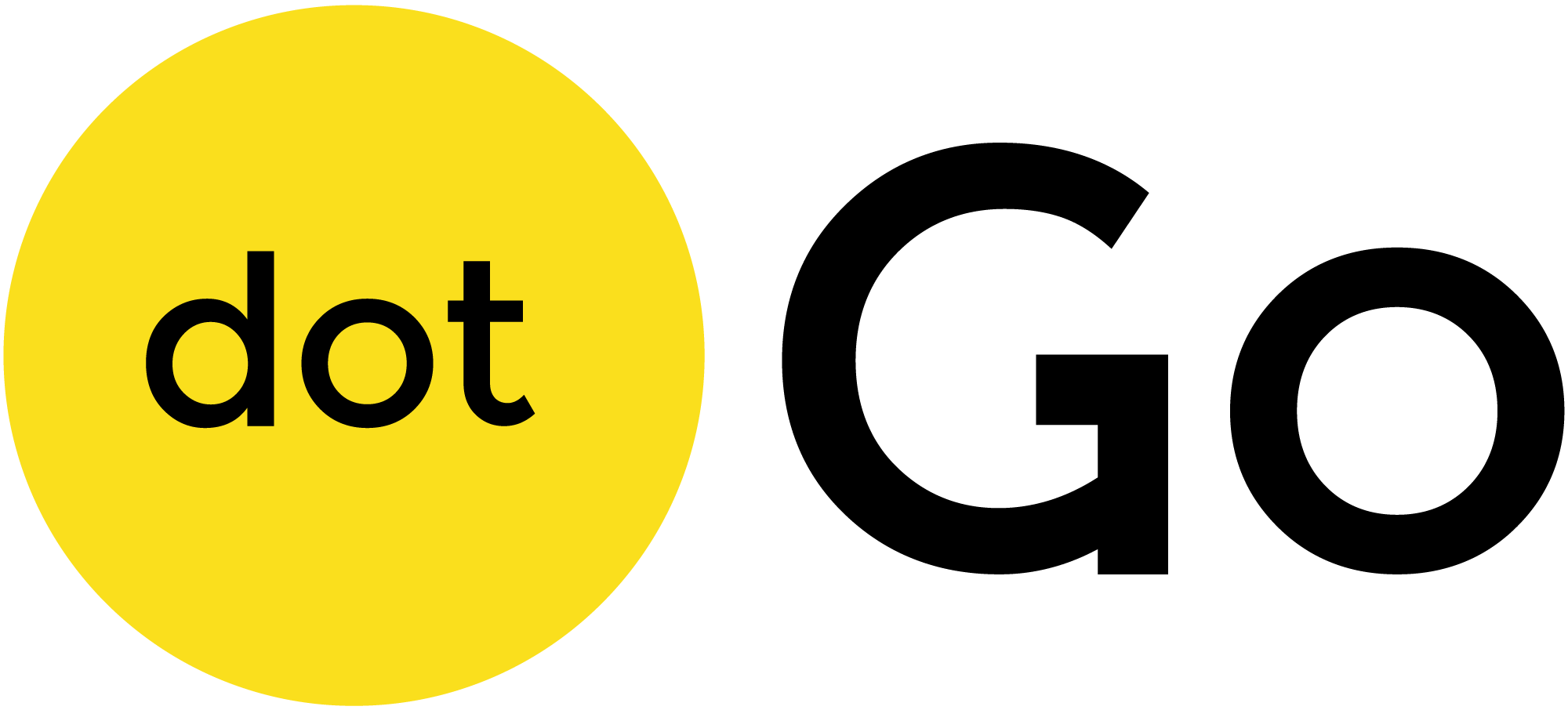
Debuggers from Scratch
Liz Rice (speaker) on November 6, 2017
dotGo 2017: Debuggers from Scratch
Read more
Machine Learning and Go
Francesc Campoy Flores (speaker) on November 6, 2017
Francesc de Campoy Flores (@francesc) is VP of Developer Relations at source{d}. Previously, he was a developer and advocate at Google for Go and Google Cloud. He also runs the popular video series #justforfunc. All the cool kids are doing machine learning, but they're doing it in Python. Can we…
Read more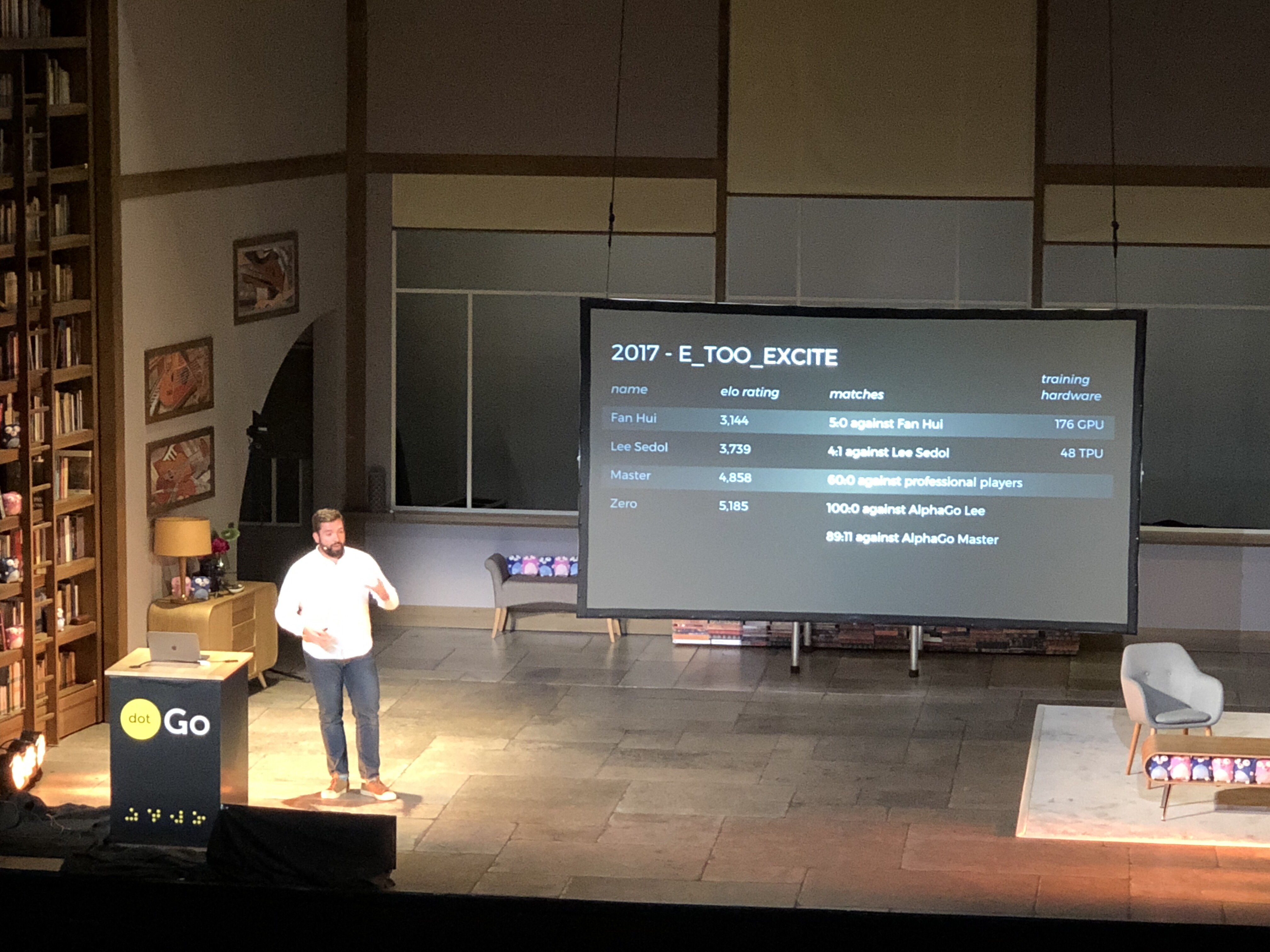
Go's Work Stealing Scheduler
Jaana B. Dogan (speaker) on November 6, 2017
Go scheduler’s job is to distribute runnable goroutines over multiple worker OS threads that runs on one or more processors. With its work stealing strategy and spinning threads, it does a lot to minimize context switches and aim better CPU utilization. This talk will a dive into the runtime…
Read more
Thunder Talks
Speakers on November 6, 2017
The thunder talks are the second round of lightning talks from many speakers. Note: This post was live-blogged at dotGo 2017. Let us know on Twitter (@sourcegraph) if we missed anything. All content is from the talk; any mistakes or misrepresentations are our fault, not the speaker's. gocv.io Ron…
Read more
Unmasking netpoll.go
Cindy Sridharan (speaker) on November 6, 2017
Cindy Sridharan (@copyconstruct) is a software engineer at imgix working on APIs, infrastructure, and other backend systems in Go. She also blogs at medium.com/@copyconstruct. Go is a great language for writing network servers. Cindy's talk explains what under the hood when you call . Note: This…
Read moreLightning Talks
Speakers on November 6, 2017
The lightning talks are the first round of lightning talks from many speakers. Note: This post was live-blogged at dotGo 2017. Let us know on Twitter (@sourcegraph) if we missed anything. All content is from the talk; any mistakes or misrepresentations are our fault, not the speaker's. Reducing Go…
Read more
Behaviors of Channels
William Kennedy (speaker) on November 6, 2017
dotGo 2017: Behaviors of Channels
Read more
The Art of Testing
Mat Ryer (speaker) on November 6, 2017
dotGo 2017: The Art of Testing
Read more
Go Lift
John Cinnamond (speaker) on November 6, 2017
This talk is about how Category Theory can help you write better code, but without using the words "Category" or "Theory" (or monad or functor or any of the scary terminology). We'll look at how the idea behind "Errors are Values" from the Go blog can be applied to different kinds of programming…
Read more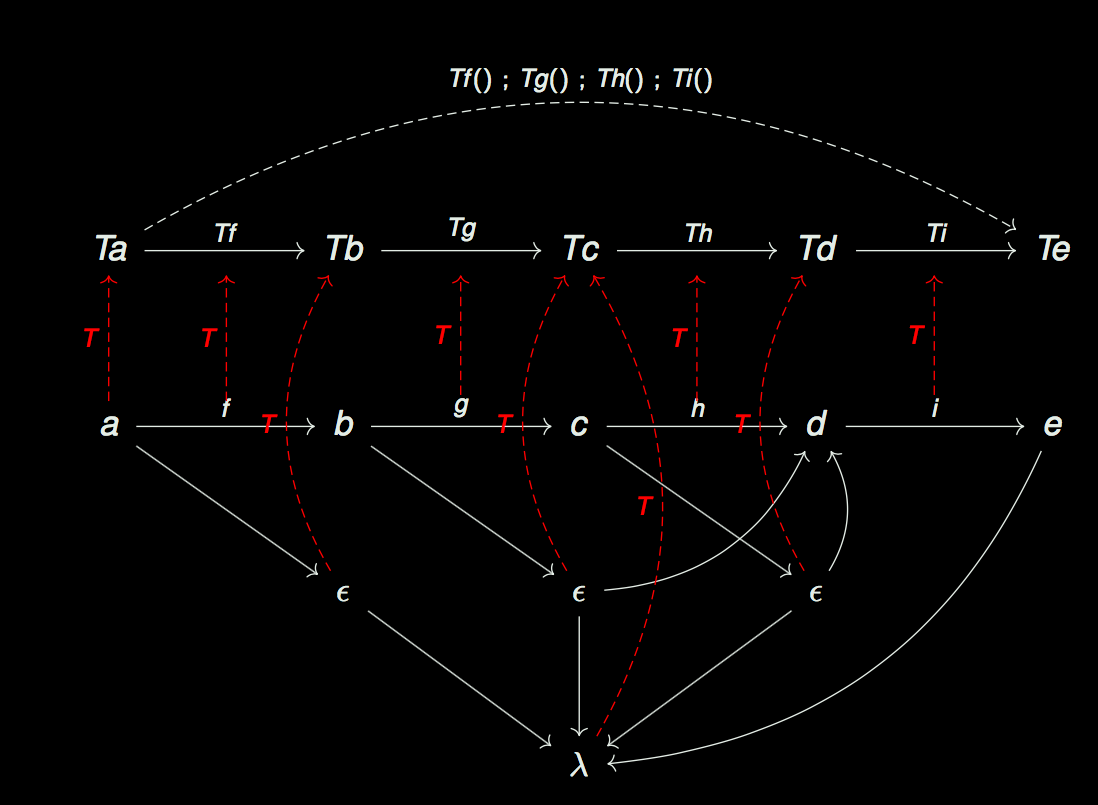
Simulating a Real-World System in Go
Sameer Ajmani (speaker) on November 6, 2017
dotGo 2017: Simulating a Real-World System in Go
Read more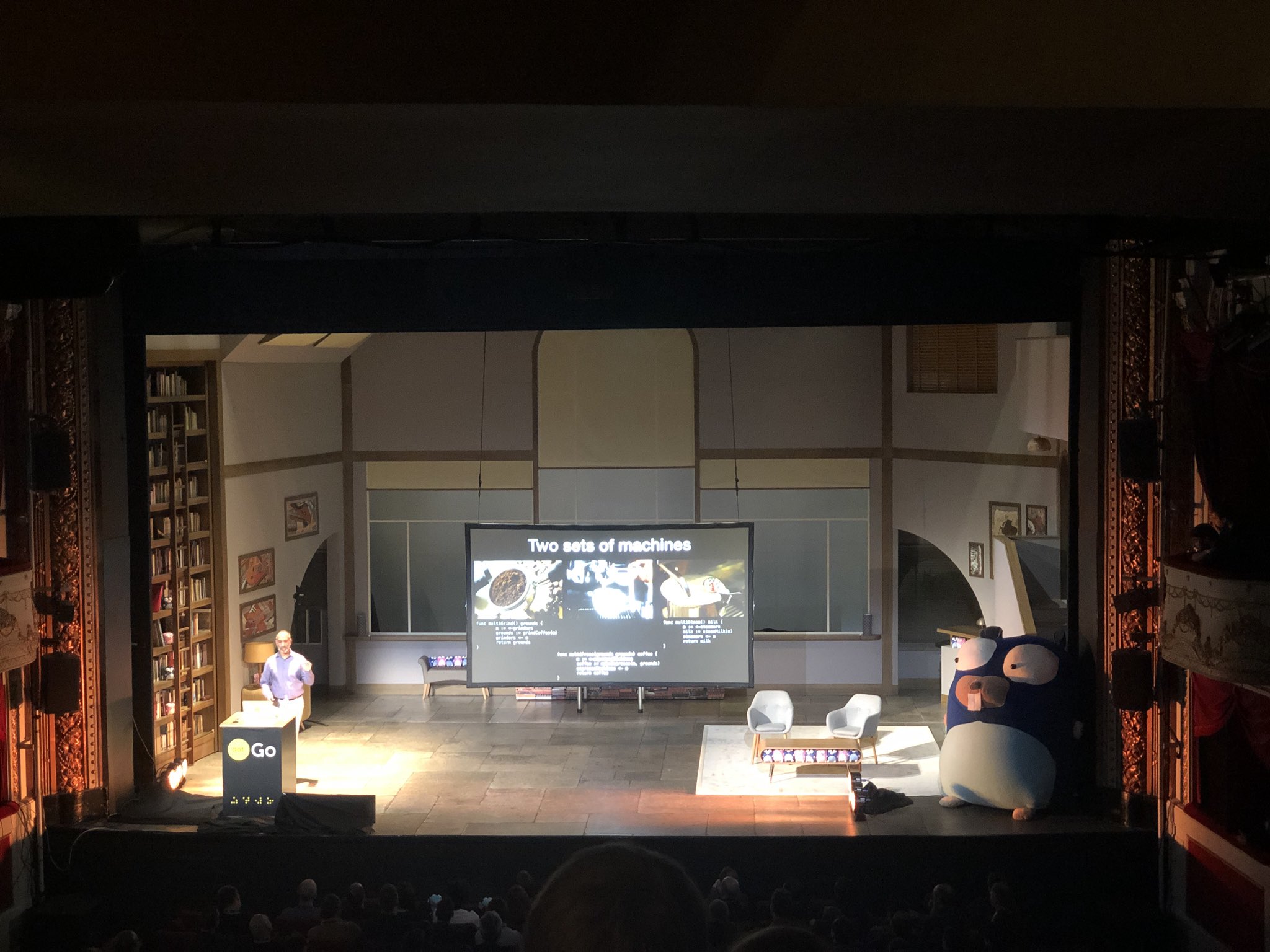
Liveblogging dotGo 2017
Quinn Slack on October 31, 2017
We’re excited to be running the official liveblog for dotGo 2017 in Paris on Monday, November 6. With the help of volunteer Gophers at dotGo in Paris, we’ll be blogging concise technical summaries of all dotGo talks, so people from all around the world can follow along and learn. Liveblogging…
Read more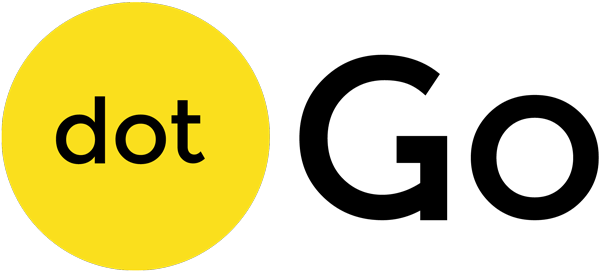
Functional Programming in Go
Aaron Schlesinger on July 15, 2017
Liveblog by Renfred Harper (@renfredxh) Editor's note: This talk makes frequent reference to this repository: https://github.com/go-functional/core Aaron Schlesinger (@arschles) is a Microsoft Azure Gopher. He leads or contributes to development on much of the Go codebase in the Kubernetes, and SIG…
Read more
Fallacies Of Distributed Gomputing
Michael Hausenblas on July 14, 2017
Liveblog by Linda Xie (@lindeexie)screenshot-20 2017-07-14 Michael Hausenblas is a developer advocate for OpenShift and Kubernetes Hat Red Hat. His background is in large-scale data processing and container orchestration. He also contributes to open source software, mainly using Go. Fallacies of…
Read more
Advanced Testing in Go
Mitchell Hashimoto on July 14, 2017
Liveblog by Beyang Liu (@beyang)Selection 012 Mitchell Hashimoto is the founder of HashiCorp and creator of popular DevOps tools such as Vagrant, Packer, Terraform, Consul, Vault, and more. Mitchell is an O'Reilly author and one of the top GitHub users by followers, activity, and contributions. He…
Read more
Evolutionary optimization
Peter Bourgon on July 14, 2017
Liveblog by Emmanuel Odeke (@odeke_et)Selection 012 Background Peter was at a Prometheus meetup in San Francisco and he lamented on the lack of logging. That lamentation made him wonder why there wasn't a Prometheus buffer log, so he decided to take on the challenge, why not? In this talk, he…
Read more
Go at the DARPA Cyber Grand Challenge
Will Hawkins on July 14, 2017
Liveblog by Beyang Liu (@beyang) Slides for this talk have been posted here. Will Hawkins, graduate student at the University of Virginia. He's much more of a C/C++ programmer than a Go programmer. He takes Dave Cheney's pop quizzes about Go on Twitter very seriously. What is the DARPA Cyber Grand…
Read more
Idiomatic Go
Edward Muller on July 14, 2017
Liveblog by Renfred Harper (@renfredxh) The video for this talk has been posted here.IMG 9383 Edward Muller @freeformz is a software engineer @Heroku, where he has worked on databases, infrastructure, metrics and logs before becoming the Go language owner. In that capacity he's seen a lot of Go c...
Read moreMy Journey to Go
Ashley McNamara on July 14, 2017
Liveblog by Kristie Howard (@kristiehow)ashley-speaker In an inspiring and thoughtful close to Friday's opening keynote, Ashley McNamara explained her journey to Go - and what you can do to get involved in the Golang community. A self-proclaimed "accidental gopher", Ashley detailed her path to…
Read more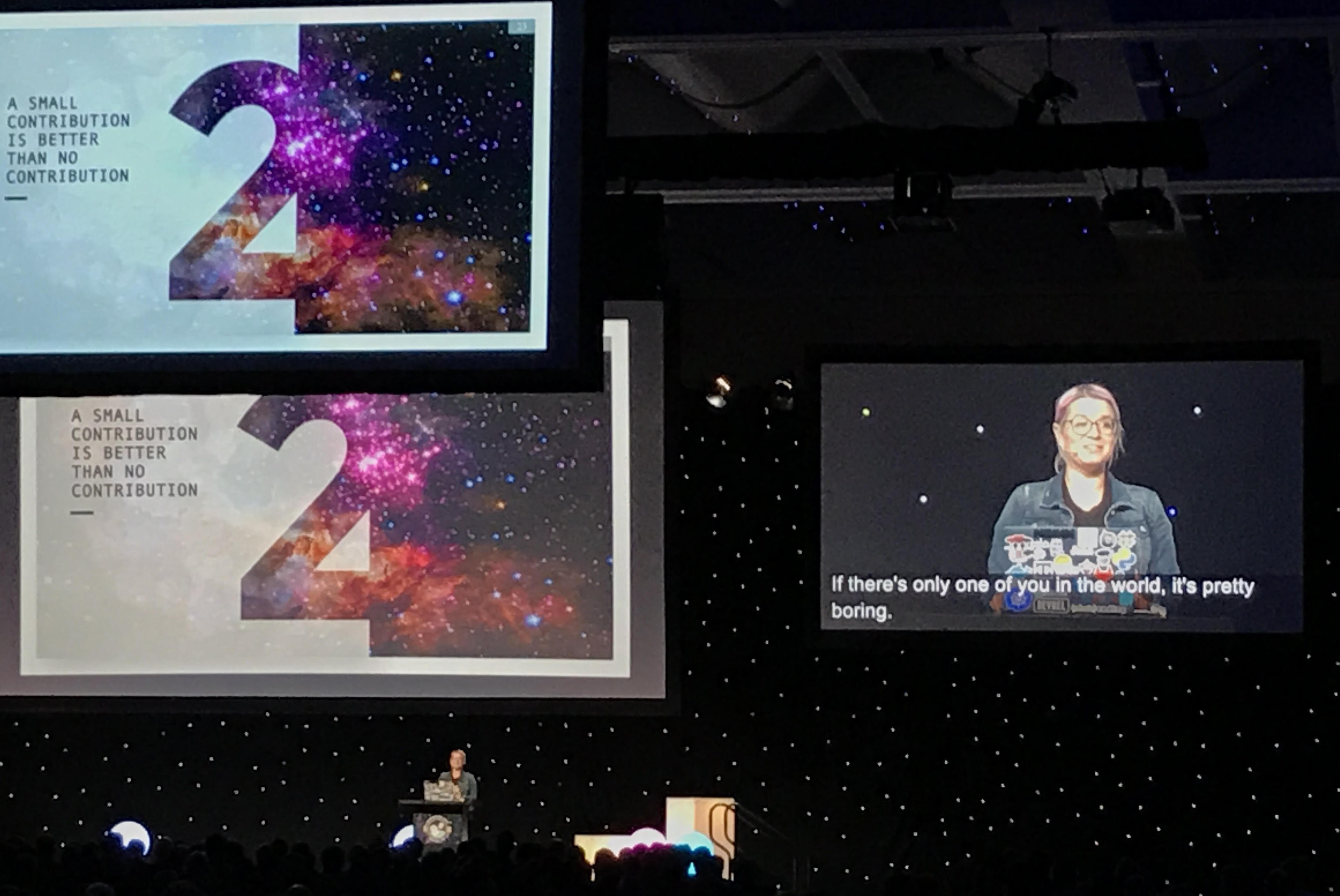
Runtime Generated, Typesafe, and Declarative - Pick Any Three
Jon Bodner on July 14, 2017
Liveblog by Matt King About the speaker Jon Bodner is part of the Technology Fellows Program at Capital One, currently working on a fork of the LGTM project with the hopes of open sourcing it soon. His team is helping to transform Capital One through introduction and integration of new technologies…
Read more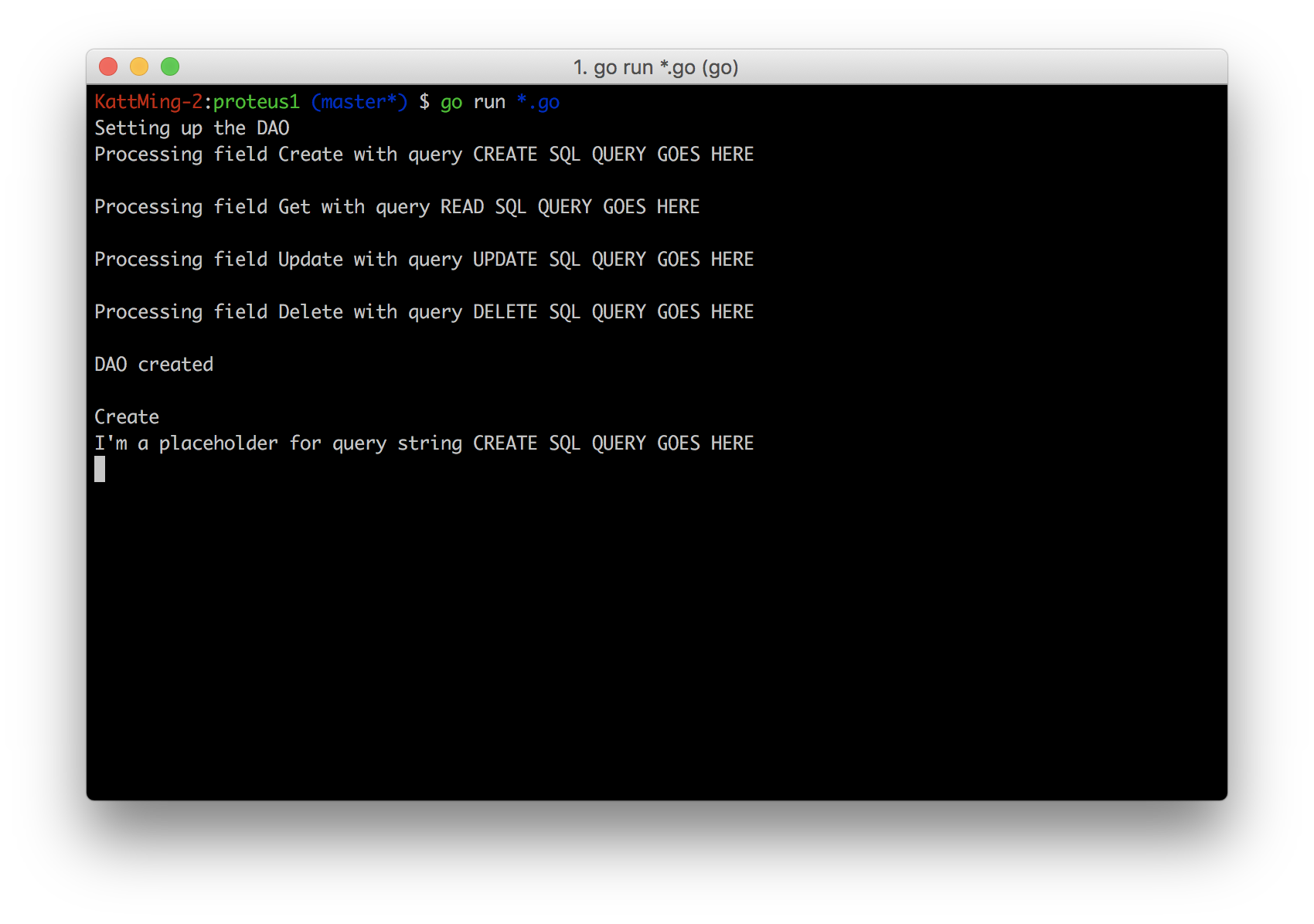
The New Era of Go Package Management
Sam Boyer on July 14, 2017
Liveblog by Alan Shreve (@inconshreveable) Update: Slides for this talk have been posted here.Boyer-1 Author Presentation by Sam Boyer @sdboyer. Sam fell into software engineering by accident, but decided to stick around. He loves complex, ecosystem-class problems, cares deeply about building…
Read more
Understanding Channels
Kavya Joshi on July 14, 2017
Liveblog by Jaana B. Dogan (@rakyll) About the speaker Kavya writes Go for a living at a start-up in San Francisco. She's primarily a backend/ systems developer, but has of late been dabbling in firmware too. Her favorite aspects of being a programmer are reasoning about systems at scale, and…
Read more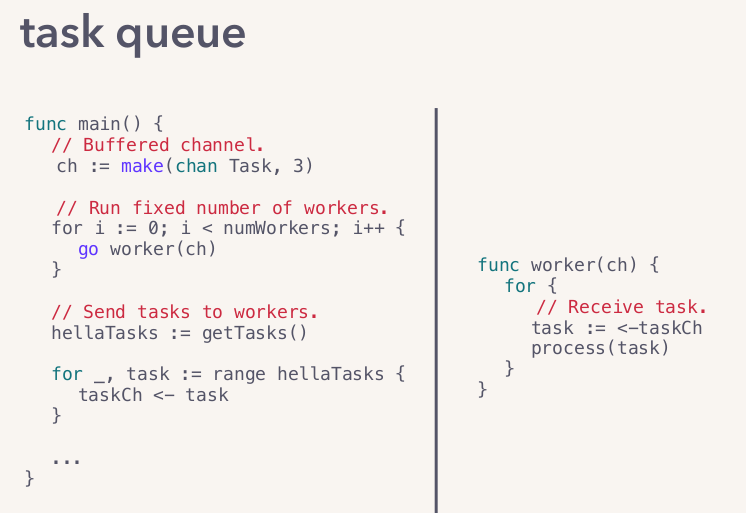
Writing Network Clients in Go: The Design and Implementation of the NATS Client
Waldemar Quevedo on July 14, 2017
Liveblog by Carlisia Pinto (@carlisia)waldemar About the speaker Waldemar @wallyqs is a Senior Software Engineer at Apcera, where he develops the Apcera Trusted Platform and is part of the NATS team. Previously, he formed part of the PaaS team at Rakuten in Tokyo which was one of the early adopters…
Read more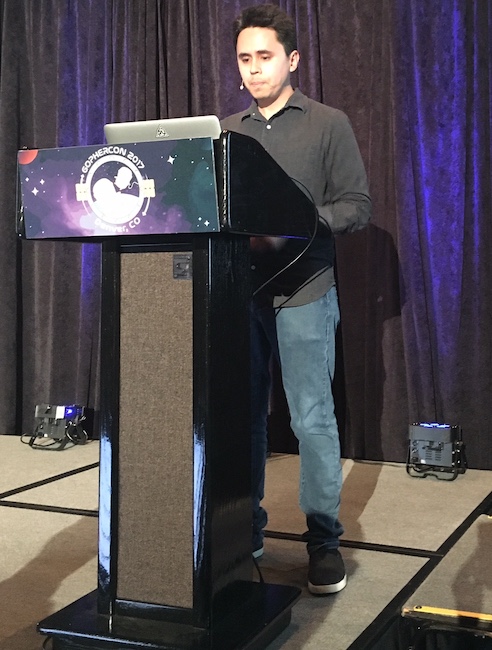
A Go Programmer’s Guide to Syscalls
Liz Rice on July 13, 2017
Liveblog by Matt KingIMG 4097.JPG Overview Even if you've never used Go’s syscall package - in fact even if you've only ever written “Hello, world” - you have definitely used syscalls. They provide the interface between your code and the operating system. Liz goes under the hood to explore what…
Read more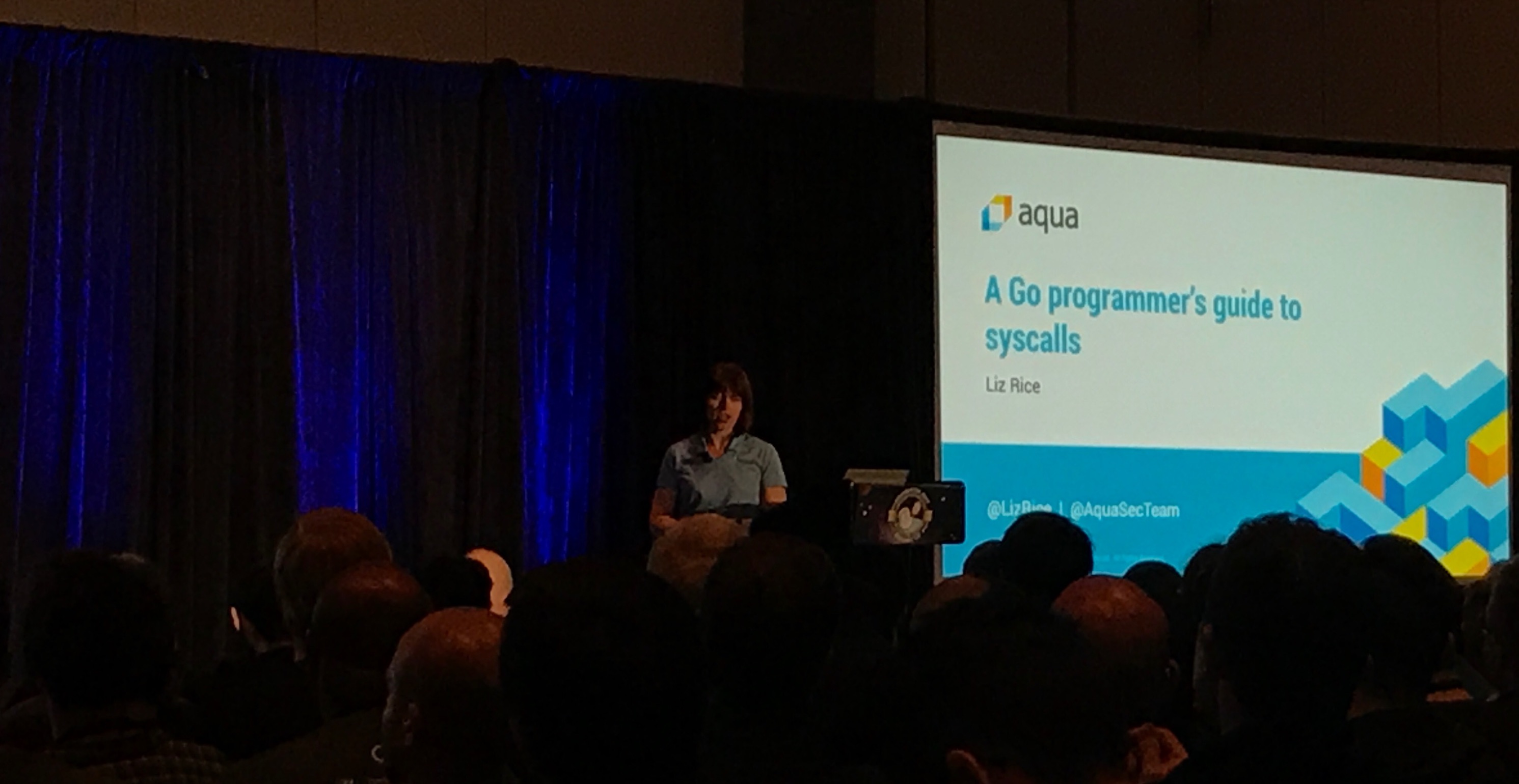
An Introduction to go tool trace
Rhys Hiltner on July 13, 2017
Liveblog by Beyang Liu (@beyang) Slides for this talk are available here. Rhys Hiltner, software engineer at Twitch, works on improving developer experience there. He is the author of critical parts of the Twitch chat server (which he wrote in Go) and works on controlling the latency introduced by…
Read more
Creating a Custom Serialization Format
Scott Mansfield on July 13, 2017
Liveblog by Renfred Harper (@renfredxh) Update: slides for this talk have been posted here.DEogyASVoAEn0jj Scott Mansfield (@sgmansfield) is a Senior Software Engineer at Netflix. He works on EVCache, a high-performance, low latency persistence system. He is the primary author of Rend, an open…
Read more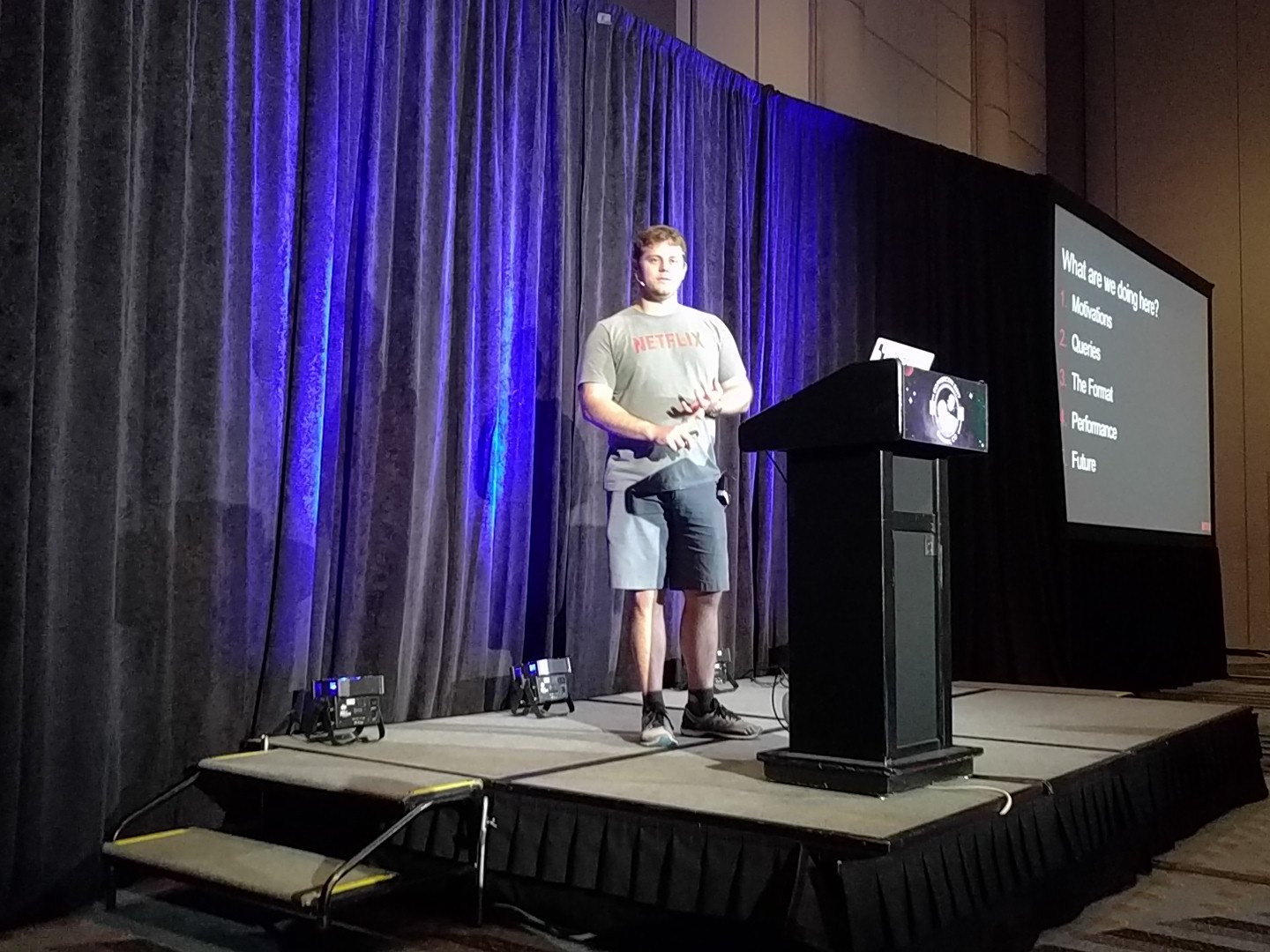
Encrypting the Internet with Go - Tutorial
Filippo Valsorda on July 13, 2017
Liveblog by Carlisia Pinto (@carlisia)filippo Overview Talk by Filippo Valsorda. Starting at the beginning of this year, a lot of your internet traffic probably is going through Go. That is because Cloudflare delivers content for a great number of websites, and they have have build their TLS 1.…
Read moreForward Compatible Go Code
Joe Tsai on July 13, 2017
Liveblog by Linda Xie (@lindeexie)Selection 012 Joe Tsai is a Software Engineer on Google's Go team. He is a regular contributor to the Go standard library and other open source projects. Gophers often use "Go 1 compatibility" as a magic phrase to indicate that all present Go1 code will always work…
Read more
Generating Better Machine Code with SSA
Keith Randall on July 13, 2017
Liveblog by Beyang Liu (@beyang) Keith Randall (GitHub) is a principal software engineer at Google and works on the Go compiler. Last year he gave a talk on high-frequency trading with Go. Previously, he was a research scientist at Compaq's System Research Center (SRC) and a student of the MIT…
Read more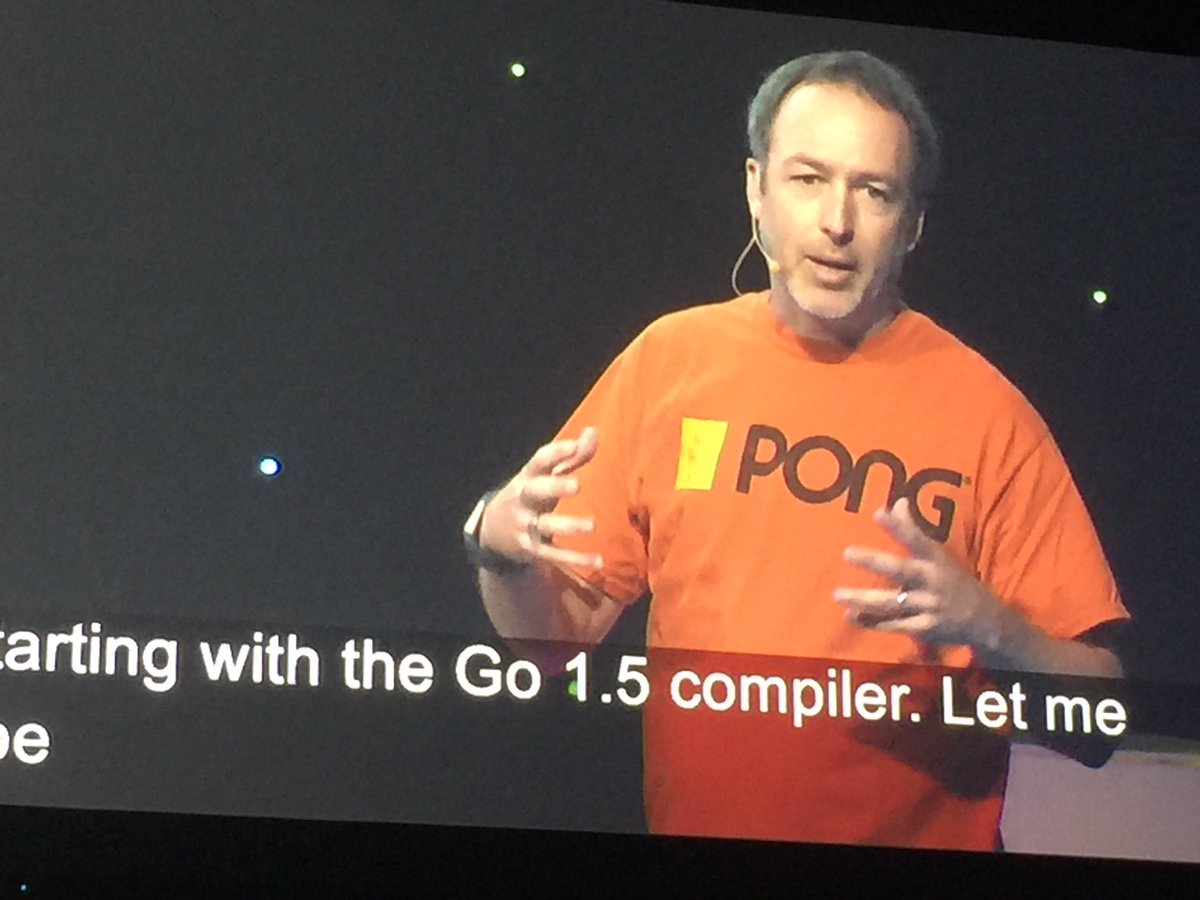
Go Reliability and Durability at Dropbox
Tammy Butow on July 13, 2017
Selection 012 Tammy Butow (@tammybutow) is an Engineering Manager in Developer Infrastructure at Dropbox. Tammy manages code workflows—the entire experience of using Go at Dropbox, from coding to shipping. She talked at GopherCon 2017 about how Dropbox engineers build and run large-scale services...
Read more
Liveblog articles from GopherCon 2017
Beyang Liu on July 13, 2017
(See an overview of all GopherCon talks with links in this post).GopherCon banner We’re excited to be the official live-blogging partner for GopherCon 2017! That’s right — we’ll be writing up concise technical summaries of as many of the amazing talks by Go experts this year as we can. For folks…
Read more
Operability in Go
Ian Schenck on July 13, 2017
Liveblog by Beyang Liu (@beyang) Update: slides for this talk have been posted here, and the video for this talk has been posted here. Improving operations in Go programs Ian Schenck, software engineer, Infrastructure at Oscar Insurance (ian.schenck@gmail.com). "I am a SWE who ends up in SRE…
Read more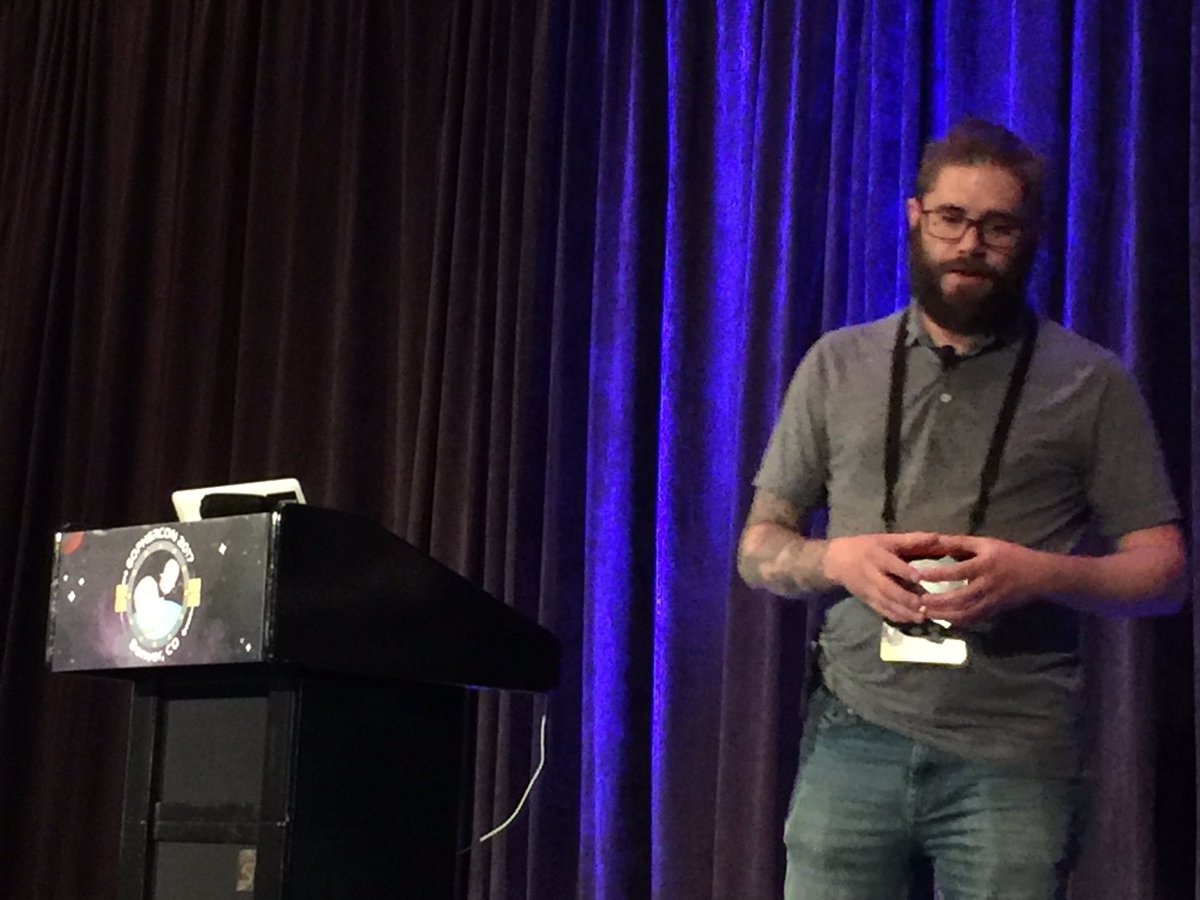
Self Deploying Kubernetes Applications
Kelsey Hightower on July 13, 2017
Liveblog by Quinn Slack (@sqs)Selection 012 Kelsey Hightower (@kelseyhightower) is a technologist and Googler who regularly comes up with refreshing new ideas for using Go and deploying software. We live-blogged his talk at GopherCon 2017 about self-deploying Go applications using Kubernetes. Note…
Read more
The Future of Go
Russ Cox on July 13, 2017
Liveblog by Dmitri Shuralyov (@shurcool)cox Go history On September 25, 2007, together with Rob Pike, they decided on the name. Go. On November 10, 2009, Go was open sourced. Go 1, the first stable release, was released on March 28, 2012. Before Go 1, Go was broken every week. Programs had to be…
Read more
Valuable Lessons in Over-Engineering the Core of Kubernetes kops, Kris Nova
Kris Nova on July 13, 2017
This post was originally written as liveblog coverage of GopherCon 2017 by @beyang. It has since been updated with the help of the speaker to include more detailed coverage of the technical details of the talk. Slides for this talk are available here. Kris Nova, of Microsoft, shares lessons on the…
Read more
Writing a Go Tool to Parse and Modify Struct Tags
Fatih Arslan on July 13, 2017
Liveblog by Matt KingIMG 4098.JPG Overview Struct field tags are an important part of encode/decode types, especially when using packages such as encoding/json. However, modifying tags is repetitive, cumbersome and open to human errors. We can make it easy to modify tags with an automated tool that…
Read more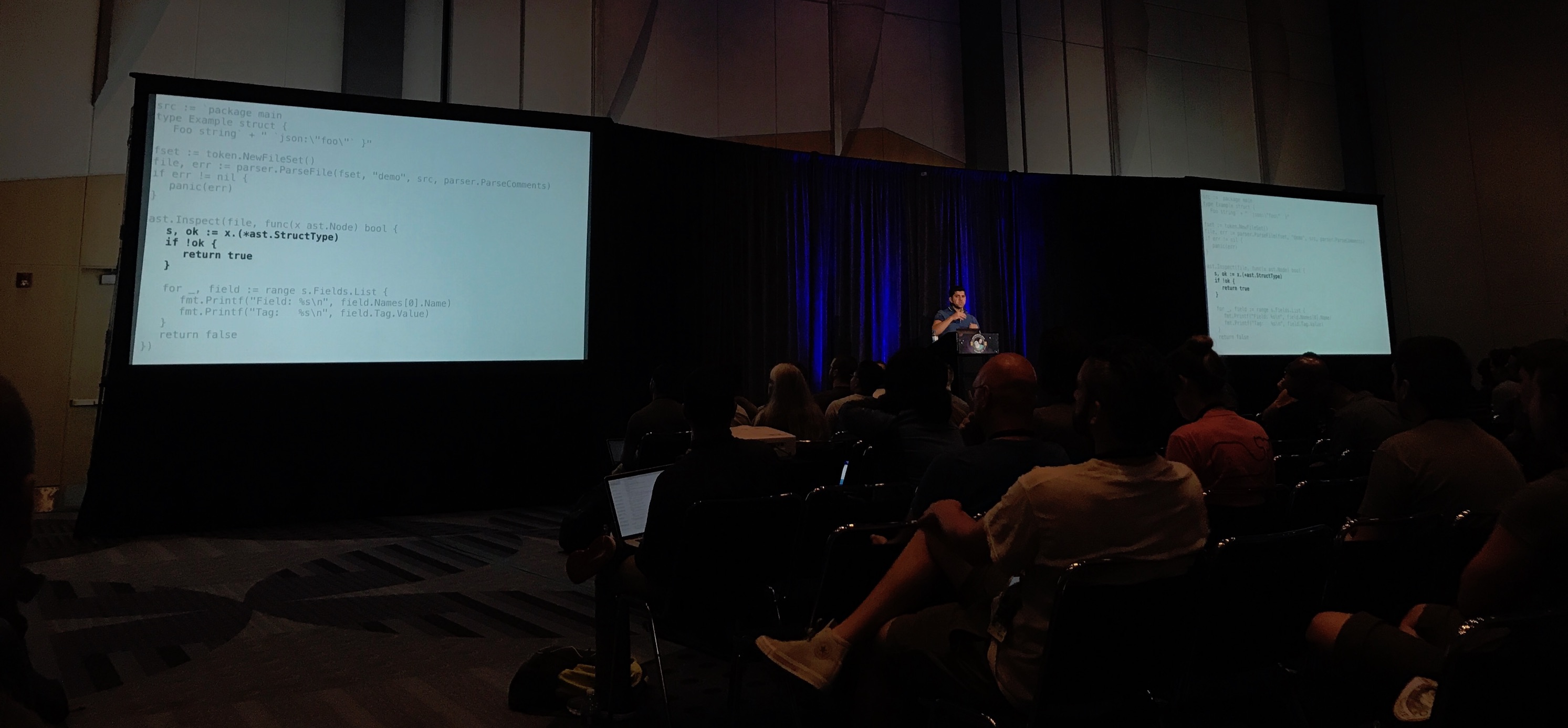
Liveblogging GopherCon 2017
Beyang Liu on July 12, 2017
We’re excited to be the official liveblogging partner for GopherCon 2017! That’s right — we’ll be writing up concise technical summaries of as many of the amazing talks by Go experts this year as we can. For folks tuning in from home, the liveblog will be a great way to stay on top of conference…
Read more
Peter Bourgon on the history of Go kit and what's next
Beyang on July 12, 2017
bourgon Peter Bourgon is the creator of Go kit. Strong majority of audience here has heard of Go kit. What is Go kit? Go kit is a toolkit for microservices. In the early days, that meant something very specific at SoundCloud (where Peter worked at the time). They were using Finagle for microservi...
Read more